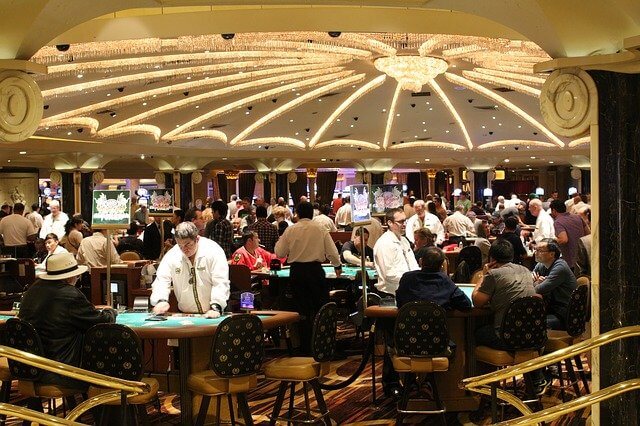
When we think of casino games, the initial images that frequently cross our minds are those of spinning wheel wheels, poker chips clinking on fabric tables, and dice rolling across a gaming area. ww88 While numerous consider these activities as mere hobbies fueled by chance, a deeper exploration reveals a fascinating blend of tactics, skill, and social interaction that elevates them well beyond simple luck. Whether you are a experienced player or a curious newcomer, grasping the nuances of these activities can greatly enhance your experience and appreciation.
Casino games have evolved over centuries, with different cultures contributing to their rich backgrounds and variations. From the intricate tactics of 21 to the bluffing methods in card games, players engage in a contest of wits as much as a gamble on numbers. This exciting interplay between luck and expertise creates a exciting atmosphere that draws millions to casinos worldwide. As we explore the world of table activities, we will uncover the strategies that can tilt the odds in your favor and the community elements that make these activities a popular choice for entertainment and interaction.
The Strategy of Table Games
Casino games frequently involve a mix of ability and luck, which makes them fascinating for participants who enjoy a challenge. Each title has their unique set of rules and tactics that can affect the outcome. For example, in games like blackjack, players are required to use tactics like counting cards and grasping the odds to make smart decisions. This skill set can significantly improve their victory potential, differentiating experienced players from novices who may depend entirely on chance.
Conversely, games such as the roulette may appear to be entirely based on luck, but strategic thinking can also come into the equation. Participants can choose between different betting tactics, such as the Martingale system, where they raise the bets after a loss. This approach can create a more controlled approach to the game. Understanding the probabilities of specific bets can also help players make smarter decisions on the roulette table, demonstrating that even in games of chance, strategy can enhance the enjoyment.
Additionally, poker stands out as a game that strongly emphasizes tactics. In contrast to most gaming games, the game of poker combines ability, mental acuity, and chance. Participants must not only concentrate on the hands they are given but also consider their opponents behavior and wagering patterns. Mastering principles like table position, the odds of the pot, and reading bluffing is crucial for success. This complexity of tactics in poker often leads to a more engaging encounter for participants, where their decisions and abilities greatly affect the match’s outcome.
Understanding Likelihood and Ratios
In the realm of casino games, likelihood and odds play a critical role in determining a gambler’s potential outcomes. Every activity has its own set of rules that dictate how the chance of succeeding or failing is calculated. For case, in matches like 21, participants have a chance to affect their ratios through planning, whereas in games like roulette, the outcomes are exclusively dictated by chance. Grasping how these probabilities are calculated can significantly affect how a player tackles the game.
Ratios are typically expressed in two forms: ratio and numeric. Ratio ratios represent the ratio of the amount won to the sum staked, whereas numeric odds show the total payout for a successful bet, including the initial bet. For example, if a game has ratios of 5 to 1, this implies that for every one dollar staked, a player could gain five dollars if successful. Learning how to understand these odds enables players to evaluate their possible earnings and formulate more educated choices during play.
Players should also be aware of the house edge, which is the casino’s inherent benefit over the gamblers. Each game has a different advantage, and grasping this idea is important for handling one’s expectations and budget. Activities with a lower advantage, such as blackjack and chemin de fer, typically offer superior odds for players compared to activities like slot machines and lottery. By understanding the relationship between chance, ratios, and the casino advantage, gamblers can enhance their gambling engagement and strategize more effectively.
The Aspect of Casino Table Games
Casino games at gaming establishments are often seen as a center of social interaction, bringing participants together in a shared experience that goes far past the mere act of gambling. The atmosphere at a blackjack table can be electric, with players engaging not only with the game itself but also with each other. Laughter, excitement, and, occasionally, friendly banter create connections that improve the overall experience of the gaming experience. This communal aspect can turn a alone endeavor into a dynamic social event, making casino games particularly enticing.
One of the fascinating elements of table gaming is the way it cultivates friendship among players. Whether it’s collaborating to defeat the dealer at a dice table or exchanging tales between hands in a poker game, the environment encourages interaction. Participants often share tips or tactics, creating a sense of community that boosts the fun. This social dynamic can make new gamblers feel welcomed and less intimidated by the competitive nature of casino games. As the game continues, friendships may form, leading to a sense of connection that keeps players coming back to the table.
Moreover, the social aspect of gaming at tables extends beyond just the participants. Casino staff play a crucial role in encouraging interaction and maintaining the flow of the game. Their ability to engage players with warm dialogue and their expertise in managing the table can create an welcoming atmosphere. This connection between players and staff adds another layer of enjoyment, where gamblers feel bonded not only to each other but also to the staff. Such interactions are often what make the experience unforgettable, as players leave with stories to tell and connections made, reinforcing the notion that gaming at tables are truly about more than just chance.
